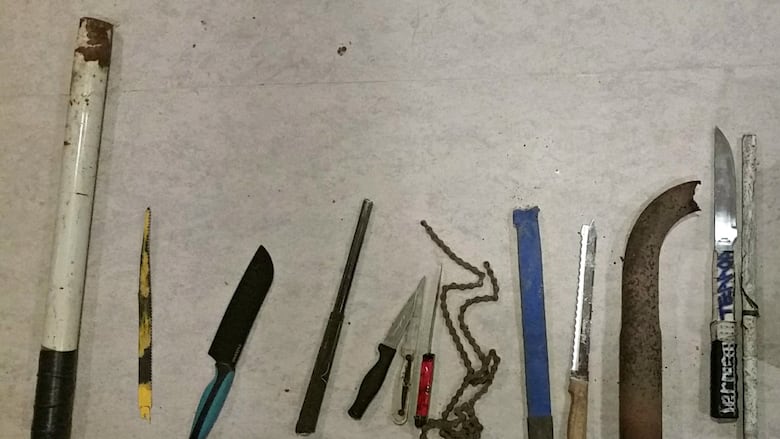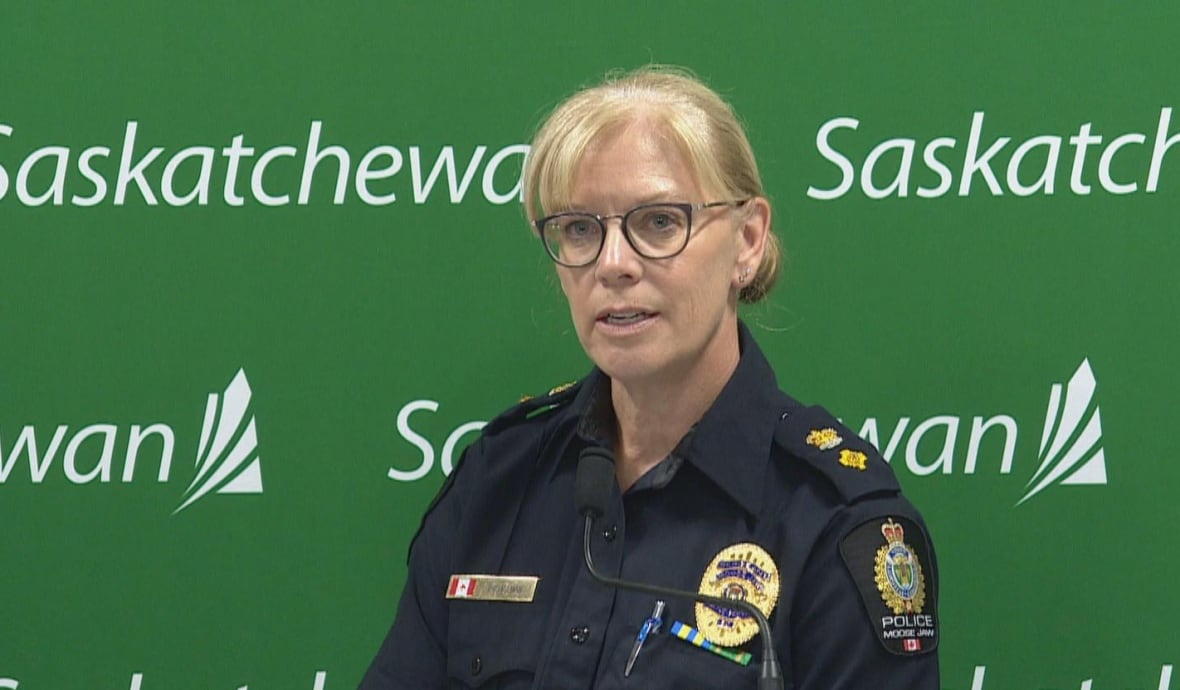Sask. government going after street weapons in public settings
Some say hypodermic needles should not be included among weapons list

The Safe Public Spaces Act, also known as the Street Weapons Act, is coming into effect in Saskatchewan on Aug. 1.
The act gives police the power to seize street weapons, which include large knives, hatchets, and bear spray. Municipalities and First Nations must first opt-in to the act, meaning that each jurisdiction has a say.
Sask. Justice Minister and Attorney General Tim Mcleod announced the coming-into-force on Thursday at Moose Jaw Police Service Headquarters.
"All of the Charter protections still exist and the Criminal Code isn't being changed by this legislation," said McLeod.
"However, we have seen an increasing number of incidents where there were people openly carrying a machete, or unfortunately, bear spray has become a real concern in a variety of situations."

McLeod says that the legislation builds upon regulations surrounding bear spray, and expands it to other potentially dangerous items. The "street weapons" listed include blades over 30 centimetres, hypodermic needles, hatchets, sledgehammers, body armour and bear spray.
"It's giving police an additional tool where somebody may be carrying an item that otherwise didn't violate the Criminal Code, but is simply dangerous for a public purpose," said McLeod. "We've heard many stories coming out of Saskatoon with bear spray in shopping malls. Bear spray does not belong in shopping malls."
Concerns over hypodermic needles being included
Sarah Kozusko, a pharmacist at Queen City Wellness Pharmacy, says the change puts vulnerable people in a worse position by including hypodermic needles as a street weapon.
"One of my big concerns is that we are going to make it harder and harder for people who use substances to call the police," said Kozusko. "This is a group of people that are already so vulnerable. Women that I deal with every day are sexually assaulted and rarely feel comfortable calling police about it, and this is going to be one other thing that makes them feel uncomfortable seeking help."
Kozusko says she doesn't want people who use substances to feel increasingly illegal and ostracised, and that housing is a better solution than charges. She says this act is more likely to cause drug users to isolate themselves, which could cause an increase in overdoses.
"People are using it as a way to deal with trauma in their lives and the things they're going through," said Kozusko. "All this is going to do is increase shame and decrease people seeking out support."
Mixed opinions in Moose Jaw
Moose Jaw Police Service's Superintendent Trish Seman said that the act will be an important tool for officers.

"Typically right now we would be more reactive than proactive," said Seman. "We get on the scene a lot of times and things have already happened. If we were at a situation or event, we see the machete as the extreme case … Sometimes we run into situations where we might not be able to seize it because there might not be a reason for us to, but this allows us now to seize it."
Possessing the street weapons in a public setting could potentially cause convictions with fines up to $5,000, or a full year in prison. The police don't need to lay a charge however, as they can simply seize the dangerous item.
Joanne Klassen, co-owner of The Boutique Next Door, says in the 32 years she's been in business in downtown Moose Jaw, crime and violence have declined greatly.
"It wouldn't be a city unless there were areas that felt unsafe," said Klassen. "As for walking around downtown, that is not a frightening thing for me at all. I think sometimes things can be over-exaggerated … It feels safe and fun."
with files from The 306

